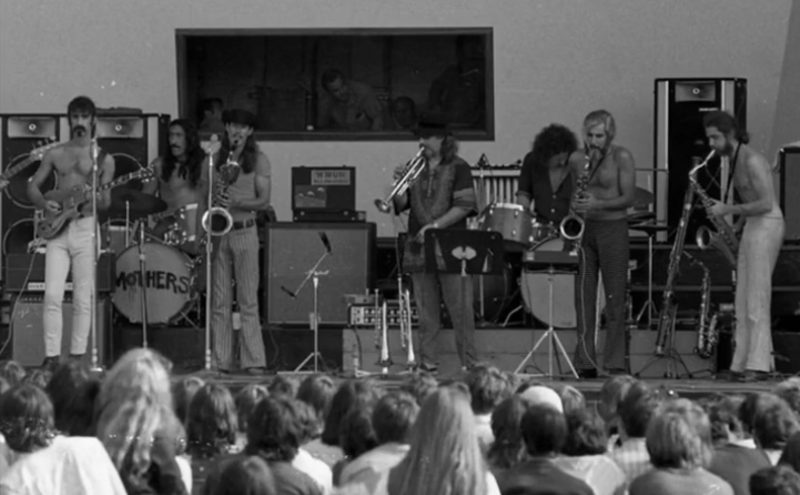Two decades removed from its last truly cutting-edge work, Metallica is still a household name, having sold millions of records worldwide. Staying relevant, however, has clearly been a struggle for the band, whose iconic status, particularly in metal circles, rests solely on the strength of its first four albums, a series of highly energized, genre-defining classics that culminate with 1988's ambitious ...And Justice for All.
A few years after that breakthrough release, the group all but abandoned the thrash-metal style with which it is universally credited among its peers as having single-handedly invented. Setting aside its progressive tendencies, Metallica began writing shorter, more straightforward songs, resulting in 1991's self-titled "Black Album." Although that release tripled previous sales marks within its first year — going from two million to six million albums sold — it also risked alienating the act's original fan base. After building a career on epic songs filled with lots of changes, the sudden move to a more stripped-down approach was a jarring shock. And from there, Metallica strayed further and further from its original vision. Understandably, the band doesn't quite see it that way.
"With the stuff we did in the '80s," says guitarist Kirk Hammett, "a lot of times it was just about showing off our chops. And after doing that for a while, we just got tired of it. It's as simple as that."
Even so, twenty years after issuing Justice, the band has returned to its roots with the Rick Rubin-produced Death Magnetic, which attempts to recapture the creative elements that earned the band a rabid metalhead following before its popularity mushroom-clouded with the more mainstream sound it's embraced in recent years. So why the return to form now?
"We got tired again!" Hammett says with a laugh. "When we started writing for what turned out to be Death Magnetic, we found out that the more progressive stuff sounded good again. It felt good because we hadn't done it for a while. All of a sudden it just sounded fresh. A lot of it also has to do with the fact that Rick Rubin said he wanted to make the ultimate Metallica album. And in his mind, the ultimate Metallica album would be more along the lines of what we did back in the '80s."
And what did producer Rick Rubin — who, according to interviews with James Hetfield, left the band alone for long periods in the studio — bring to the table?
"His whole approach is like that of a fan, a person who goes out to the record store and buys albums," says Hammett. "He knows what he expects to hear from a band, and when he doesn't hear it, he just goes elsewhere. I think, because he has that perspective and not a musician's perspective — as a lot of producers do — he has a clearer idea of what a band should sound like. He's not bogged down in 'A minor in this part instead of D major.' That's really cool, because it leaves all the musical problems for the band to solve. At the end of the day, you get a less adulterated result. One thing about Bob Rock was that a little bit of his songwriting sensibility would work its way into the music — whereas with Rick Rubin, none of that happened, because he's not a musician to begin with."
Listening to the album, it's hard to deny the band's renewed vigor for fast-paced riffing — the foundation of the Metallica sound, thrash metal in general and the single ingredient most glaringly missing from its past five releases. "These new songs have pretty involved arrangements," Hammett points out. "It's not your traditional verse-chorus, verse-chorus-bridge sort of thing. I actually really enjoy it when the songs are a little bit more challenging."
But it's also clear that the band is trying rather than just doing what comes naturally. This sentiment is probably best reflected in the 2004 documentary Some Kind of Monster, which allowed the public a painfully unfiltered view into the band's dysfunctions and ultimately resulted in extended group therapy sessions.
"I didn't want any of it to come out," Hammett admits. "But then I thought it can help people see that therapy is not a bad thing. I come from a generation where therapy was stigmatized. Going to see a shrink was considered a weakness. But after my experiences, my whole deal was, 'If we can help people work their way through whatever situation they're going through, then I'm fine with it.' But by the same token, I'm a very private person, so I really had to make a concession. If there's a band out there on the verge of breaking up, maybe they'll see this movie and think otherwise. I had a long talk with the producers about that very thing."
Although Metallica's newfound ability to communicate with each other seems healthy, you have to wonder how the whole process has affected the music. What does a band do when its classic back catalogue was fueled by rage and alcohol?
"I know that when I play heavy music, it just makes me feel good," Hammett notes. "It makes me feel great, as a matter of fact. When I'm really down and out, music makes me feel better, and it just happens to be heavy metal that's the music that moves me emotionally. I would think that it doesn't really matter if you're clean and sober or not. You don't have to be clean and sober or a raging drunk to feel how music moves you."
During thrash's heyday, which Hammett describes as a "zeitgeist," he admits that he actively avoided the music of the band's peers — highly creative bands such as Anthrax, Voivod, Celtic Frost and Sepultura, all of whom brought a wealth of new ideas to the thrash palette and expanded conventional notions of what could be done within the limitations of the form.
"They were reaching for some pretty cool ranges of expression," Hammett allows. "And for that reason, I really tried not to listen to them too much." In contrast — and perhaps this is another indication of Metallica's ongoing evolution — Hammett doesn't appear to be as threatened by the metal being made today. "I think metal these days is pretty good," he enthuses. "The level of quality is really up there. I like that, because I feel challenged."
Hammett's outlook has also changed with regard to his role in Metallica. Early on, he mostly played only leads while frontman James Hetfield handled all the rhythm. "The whole reason for that in the beginning was that James had such a tight style of rhythm playing," he explains. "There are merits to doing it both ways. When you have one guy, it's going to be like a plank, almost like different grains of wood compressed into one thing. But when you have two separate guys, the timing will be slightly off. What that does is it actually makes it sound big."
These days, there's more room for Hammett to get his ideas across.
"I've always been more of a team player," he explains. "A lot of times, if Lars and James had butting opinions, the last thing you needed was a third person in there. It would just add to the inertia of the situation. As far as music is concerned, I wrote parts. All the parts that we ever write have bits and pieces from everybody, and I was totally fine as long as they used my bits and pieces of music.
"But we started writing together as a band with St. Anger, and I would have to say that now the dynamic between James and Lars and myself is a lot different, a lot more even as far as the quality of the ideas that are being thrown out there. And now that we have Rob [Trujillo, bassist] in the band, who has the same approach and quality of musical ideas, I definitely am thinking that four heads are better than two."












